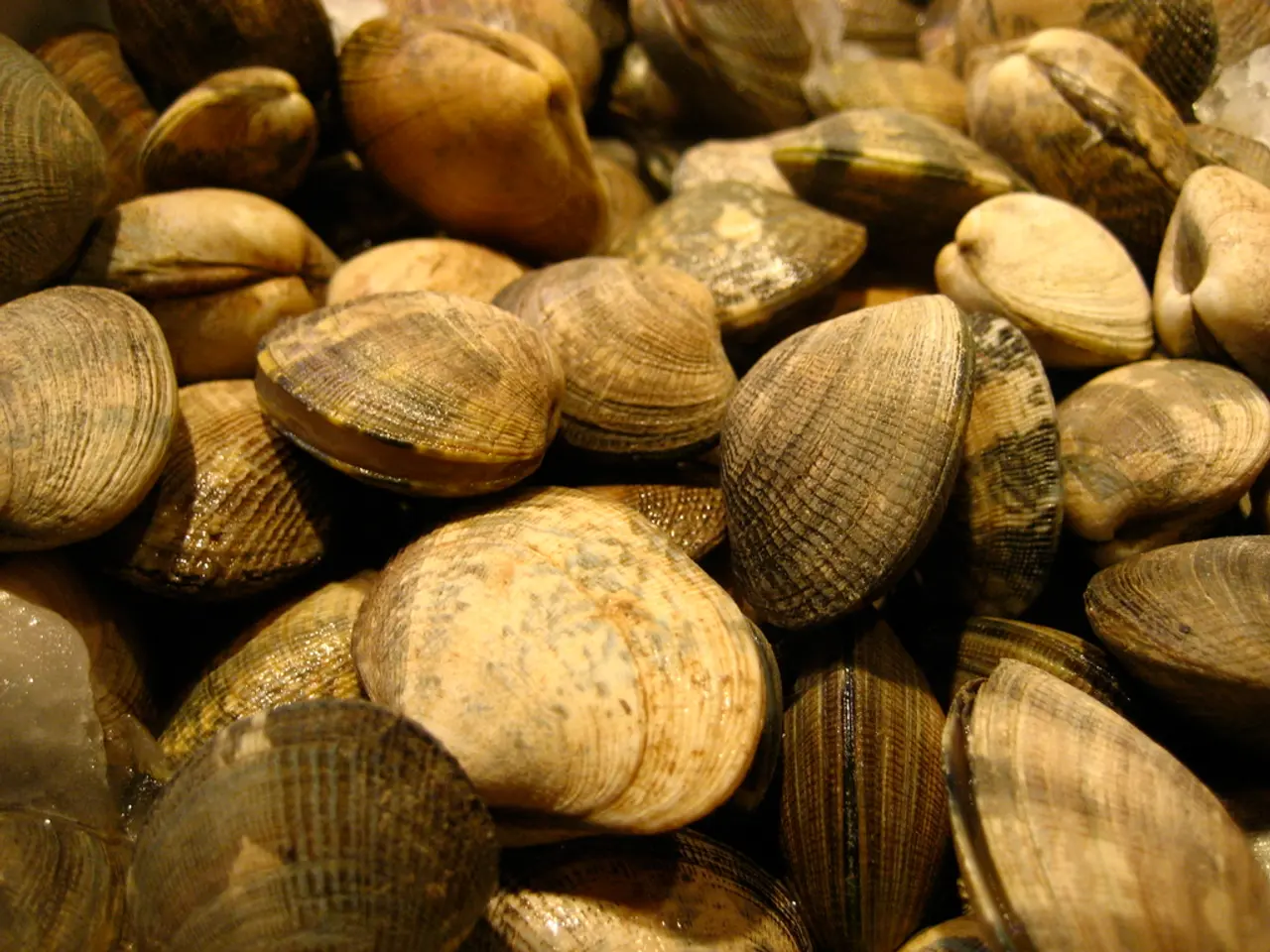Impact of Weight and Heart Disease on Breast Cancer Risk Post-Menopause: An Examination
A recent study published in the American Cancer Society's journal has shed light on the relationship between cardiovascular disease (CVD), weight, and breast cancer risk in postmenopausal women. The research, conducted by the International Agency for Research on Cancer, used data from around 170,000 participants from two European prospective cohort studies.
The study found that women who developed CVD had a 31% higher risk of breast cancer, while type 2 diabetes did not increase the risk. Dr. Christopher Berg, a noninterventional cardiologist, noted that the study shows the risk of breast cancer associated with elevated body mass index (BMI) is increased in women who develop cardiovascular disease.
The study also found that for every 5 kg/m² increase in BMI, the risk of breast cancer increases by 31% for women with CVD, compared to a 13% increase for those without CVD. Dr. Heinz Freisling, the research team leader, explained that excess body weight can lead to chronic inflammation, high insulin levels, and abnormal cholesterol, all of which can contribute to heart disease.
Furthermore, the combination of being overweight (BMI ≥ 25 kg/m²) and having CVD is estimated to lead to 153 more cases of breast cancer per 100,000 people per year than expected. Dr. Freisling also stated that adipose tissue secretes hormones, such as leptin, which can impact blood pressure, heart rate, stimulate cell division in breast tissue, and suppress immune responses, all of which are risk factors for breast cancer.
These findings suggest that managing weight and cardiovascular health could be crucial for reducing breast cancer risk in postmenopausal women. Dr. Berg suggested engaging in regular physical activity, avoiding excessive alcohol consumption, quitting smoking, making heart-healthy dietary choices, such as following the DASH or Mediterranean diet, and incorporating strength training to shift metabolism towards retaining the more metabolically active muscle tissue for cancer prevention.
In addition, Dr. Bhavana Pathak, a board-certified hematologist and medical oncologist, recommended including more whole foods, such as fruits, vegetables, and grains, in one's diet for cancer prevention, as they are healthy for the microbiome with micronutrients and fiber to sustain a healthy immune system and maintain healthy lipid levels involved in the genesis of atherosclerosis.
It's worth noting that nearly 74% of people living in the United States have BMI levels that indicate either overweight or obesity. Breast cancer affects postmenopausal women at higher rates, as hormones like estrogen are produced in adipose cells (body fat) after menopause.
As the study highlights, managing weight and cardiovascular risk factors could play a significant role in reducing the risk of breast cancer in postmenopausal women. It underscores the importance of maintaining a healthy lifestyle for overall health and well-being.
- The study in the American Cancer Society's journal revealed that postmenopausal women who develop cardiovascular disease (CVD) have a 31% higher risk of breast cancer.
- Dr. Christopher Berg noted that the study indicates the risk of breast cancer associated with elevated body mass index (BMI) is amplified in women who develop cardiovascular disease.
- Every 5 kg/m² increase in BMI was found to increase the risk of breast cancer by 31% for women with CVD, compared to a 13% increase for those without CVD.
- The research indicates that the combination of being overweight and having CVD could lead to 153 more cases of breast cancer per 100,000 people per year than expected.
- Dr. Freisling stated that adipose tissue, which secretes hormones like leptin, can impact blood pressure, heart rate, stimulate cell division in breast tissue, and suppress immune responses, all of which are risk factors for breast cancer.
- Dr. Berg suggested maintaining cardiovascular health through regular physical activity, avoiding excessive alcohol consumption, quitting smoking, making heart-healthy dietary choices, such as following the DASH or Mediterranean diet, and incorporating strength training for cancer prevention.
- Dr. Bhavana Pathak recommended consuming more whole foods, like fruits, vegetables, and grains, for cancer prevention, as they are beneficial for the microbiome, immune system, and maintaining healthy lipid levels involved in the genesis of atherosclerosis.




